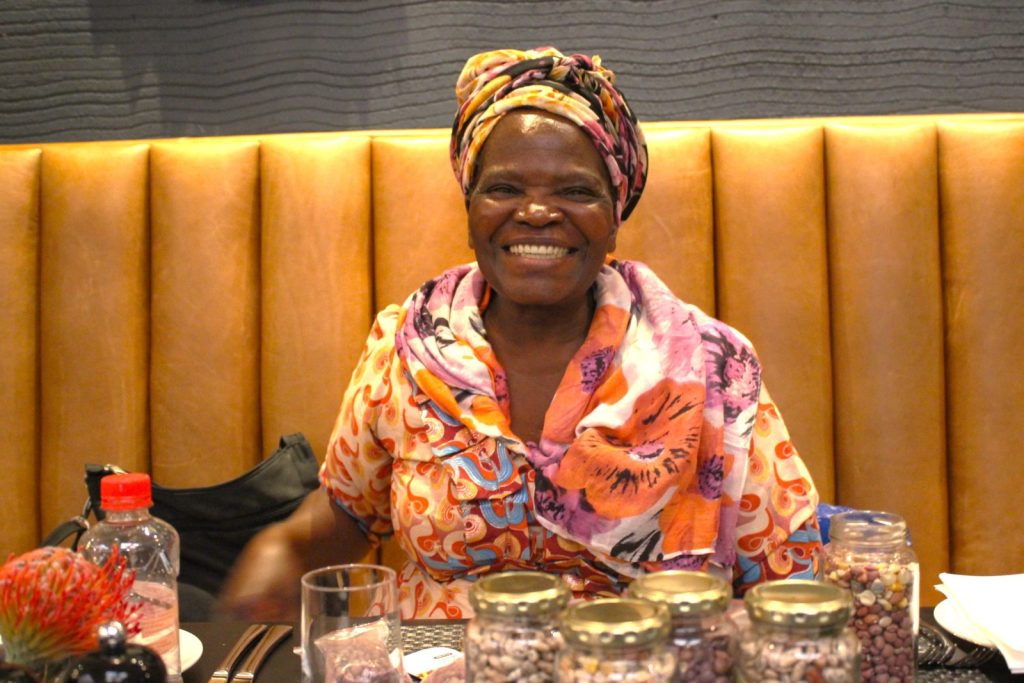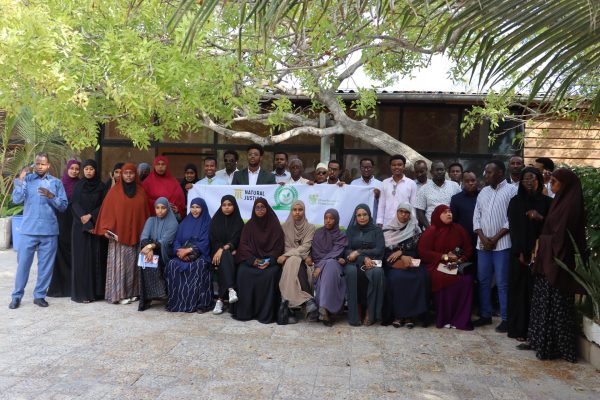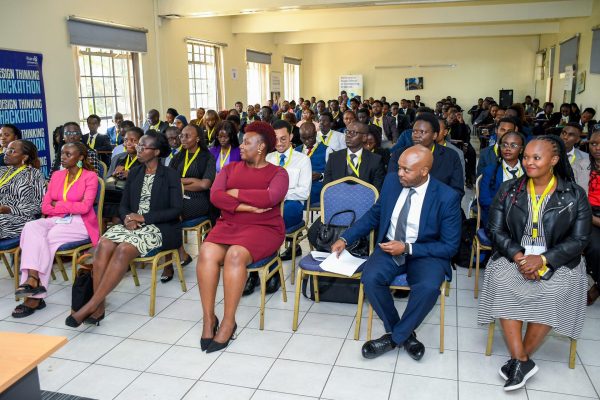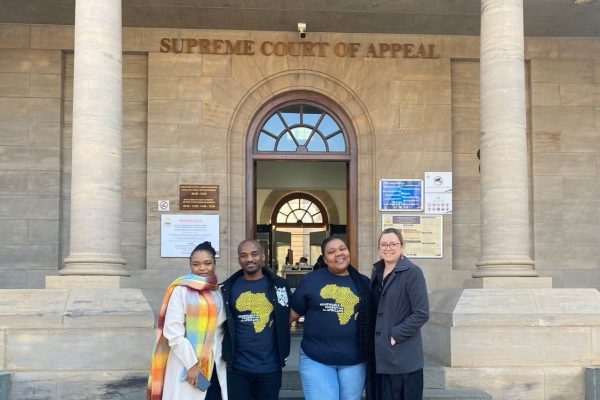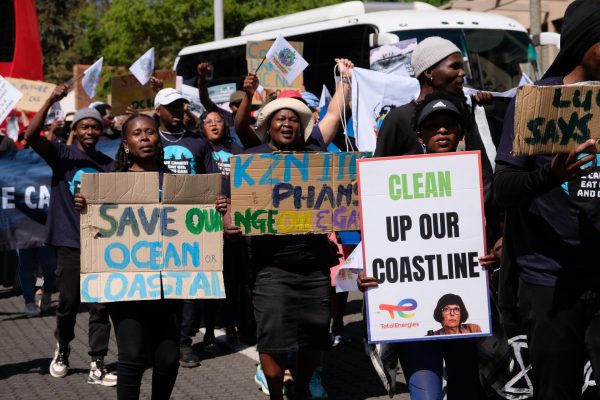Climate activist and seasoned farmer, Refiloe Molefe is resilient.
Her passion for growing vegetables and taking care of people has reaped rewards, not only for her flourishing business, but also for the communities and young people she’s inspired.
The Johannesburg based farmer/business owner, has won many awards and prizes for the food gardens and knowledge she’s passed on to young people about sustainable farming practices over the years – although her journey has not been easy.
I met Refiloe at a Climate Justice Indaba. Refiloe brought packets of organic seeds, beans and kernels to Cape Town to share her story and the fruits of her success.
Under the theme, “Climate Justice Indaba and Agroecology Community Learning Exchange”, about 70 delegates representing a diverse range of stakeholders advocating for climate justice, gathered to address the ongoing ecological crisis and its impact on food security systems. This learning exchange was hosted by Oxfam South Africa, Natural Justice, the South Africa Climate Action Network (SACAN) and Pan African Climate Justice Alliance (PACJA).
Like the other delegates, Refiloe has nurtured a passion for the environment, and believes that we require people to collectively address the climate crisis and its disproportionate impacts on vulnerable communities. Her story is deeply inspiring and definitely worth sharing!
Planting the seeds of success
Refiloe grew up with her hands in the dirt. When her aunt, who raised her, would return from her shift as a nurse, she’d toss aside her uniform and head straight toward the garden – planting the first seeds of love for the soil within Refiloe.
But Refiloe’s story really began some years later, in 2006, when she first opened a creche in a garage – with 86 mouths to feed. She set out to find donations and quickly learned that loaves of bread she sourced as donations, were not adequate nor the best nutrition for growing bodies.
When the government was unable to assist with more donations, she found a piece of land near the Standard Bank Arena, and in 2008 was able to kickstart her first farm. She also managed to find a few volunteers to till the land.
“I said – now I have power!”
As the initiative took root, Refiloe was encouraged, and started to enter competitions run by private corporations – the first in which she won R10 000 and was able to buy tools – digging tools, watering cans and forks for the farm.
Over time, the creche’s children were safely housed in other facilities and Refiloe turned her focus to the farm – which became a critical source of food for the community.
A dream starts to sprout
Fast forward a few years and with a few more cash injections from competitions and awards she’d won for her community service, Refiloe’s dream gained momentum.
By 2011, Refiloe secured a piece of land bordering a bowling green that was badly neglected – about 500 square meters. Initially she tilled this land alone, farming beetroot, pumpkin and other vegetables. She decided to mobilise youth in the area and fourteen young people started working the land.
But when these youth started asking technical agricultural questions, she approached government departments to help – aligning with the Agricultural Sector Education and Training Authority (AgriSETA), empowering the inquisitive minds with more knowledge and skills.
“I know the practical parts of farming but not the theory. They trained us all for four years about plant protection and I learned about soil PH levels and photosynthesis – I learnt all these big words from the AgriSETA.”
Ploughing through the difficulties
“I didn’t come into this space with a CV – but there was a goal inside me that I wanted to achieve.”
Refiloe has since had many successes. This includes an initiative involving university students who volunteered on her farm. She has also met with various communities around Johannesburg – setting up soup kitchens and empowering women – until she started running out of space. She’s also spent some time working with the provincial agricultural department on a project related to women and the environment.
“I’m a climate activist – I don’t hesitate when it comes to these issues…climate change is very bad for farming – with the change in weather, you never can predict when you’ll have rain or not. I lost a whole crop of maize one year when the sun burnt my crop.”
“Food is medicine. You are what you eat. And it’s about passing on the knowledge to our youth and you must take care of your own community. Because a hungry person is an angry person.”
Refiloe’s story has had positive impacts on many people’s lives and is a stark reminder that initiatives and solutions that prioritise human rights, agroecological practices, indigenous knowledge systems and community-led initiatives, will harvest success.
Through knowledge exchange, and collective action, we have the power to foster collaborations that drive transformative change towards a climate-just transition future.

